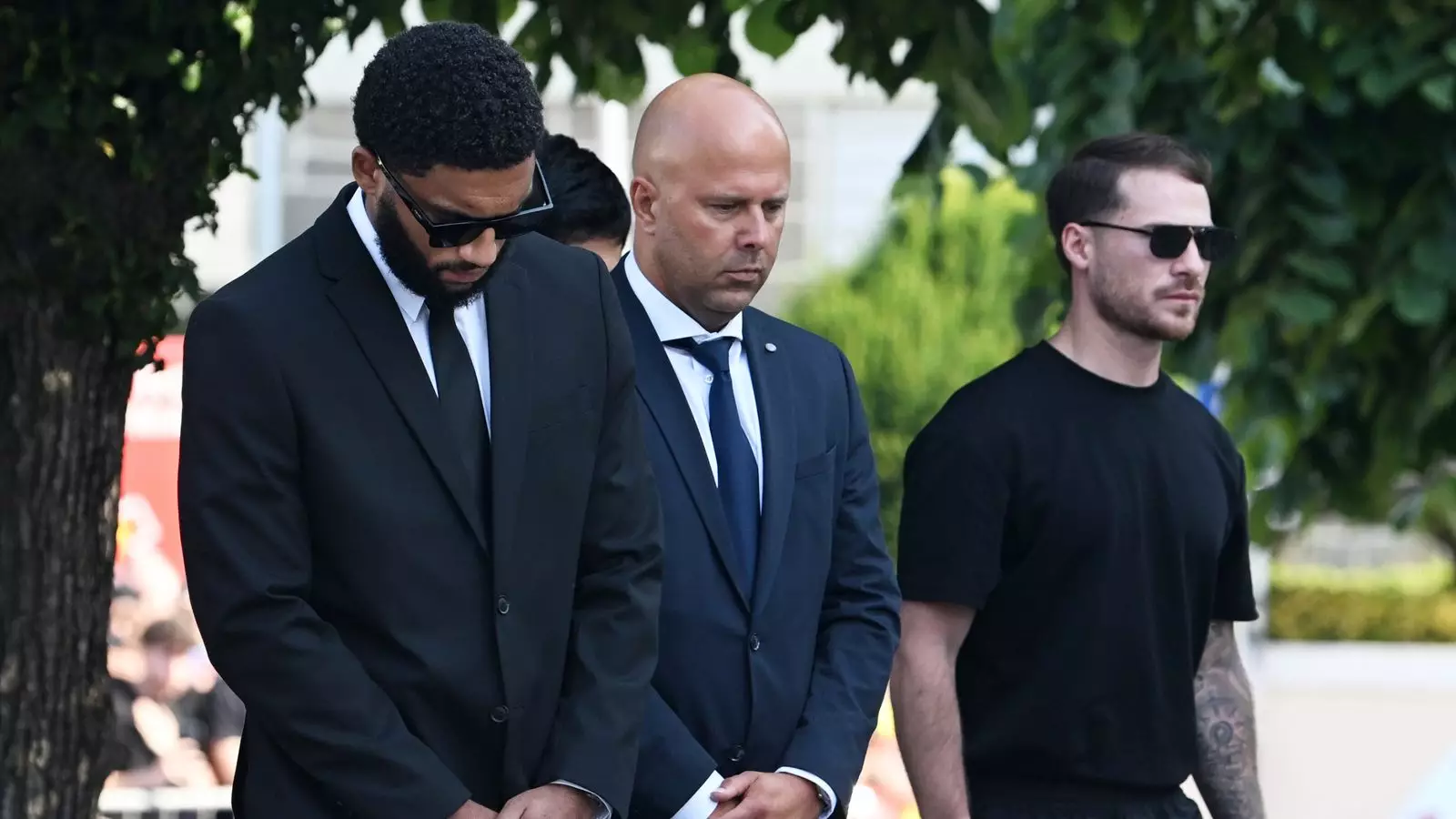The heartbreaking loss of Diogo Jota and his brother Andre Silva reverberates far beyond their immediate families, exposing the fragile veneer of our collective existence. When a young athlete’s bright future is abruptly extinguished in a fiery accident, it forces us to confront the unpredictable and uncontrollable nature of life. Jota, just 28, a renowned football star, leaves behind a wife and three young children, while his brother was just 25, pursuing his passion in Portuguese football. Their deaths symbolize the devastating reality that no matter how celebrated or resilient one may seem, life can turn tragic in an instant. The personal stories behind the headlines remind us that these are not merely sporting figures—they are sons, brothers, husbands, fathers—and their loss devastates their loved ones and communities alike.
A Community in Mourning, United by Grief
The funeral in Gondomar was a poignant display of humanity’s capacity for compassion amid sorrow. Liverpool players—past and present—attended to pay their respects, creating a bridge between the sporting world and the emotional pain felt by ordinary people. The sight of renowned athletes like Van Dijk, Robertson, and others lining the streets underscores a vital moral stance: in moments of tragedy, we are all interconnected, regardless of our backgrounds or professions. Their participation transformed a personal funeral into a universal act of solidarity. It’s disheartening, yet telling, that even in the midst of high-profile attention, genuine empathy remains at the heart of collective mourning.
We Must Recognize the Fleeting Nature of Life
This tragedy starkly reveals an uncomfortable truth: our lives are inherently fragile. In the rush of modern life, it’s easy to forget this truth until faced with events that shatter illusions of security. The fiery crash of the Lamborghini—an event that seems almost surreal—serves as a tragic wake-up call; it underscores the importance of cherishing every moment and prioritizing meaningful connections over superficial pursuits. Society, caught up in fleeting successes and material pursuits, often neglect the spiritual and emotional dimensions that truly define our humanity. The sudden death of two young men reminds us that vulnerability exists suddenly and without mercy, challenging our assumptions that tomorrow is guaranteed.
Lessons in Compassion and the Power of Community
In times of profound grief, communities tend to unite, but this collective response should serve as a wake-up call rather than a temporary bandage. The outpouring of grief from Liverpool’s squad, friends, and fans demonstrates the strength of shared bonds and the importance of supporting one another. It also raises difficult questions about how society handles grief, loss, and vulnerability. Are we fostering environments where emotional expression and mutual support are prioritized? Or do we, in our pursuit of progress and productivity, overlook the essential human need for empathy? The funeral and the emotional speeches reinforce that communal compassion is a pillar in healing and maintaining resilience.
Society Needs to Reassess Its Priorities
This tragedy should catalyze a broader societal reflection on safety and individual well-being. While professional athletes often appear invincible, their vulnerabilities lie beneath the surface, just like anyone else. The car accident that claimed the brothers’ lives lays bare the need for more stringent safety measures, awareness, and perhaps a reconsideration of how we approach risk in everyday life. Societally, we must shift focus from superficial metrics of success to a more profound understanding of what truly matters—our health, relationships, and human connection. There is a moral imperative for governments, communities, and families to foster environments where safety is prioritized, and mental health and emotional well-being are openly discussed and supported.
The Enduring Power of Memory and Legacy
As the community mourns, the question becomes: How do we honor those lost in ways that transcend grief? Memorials, tributes, and acts of solidarity serve not just as symbols of remembrance but as calls to live more intentionally. We should not let their deaths be in vain by slipping back into complacency. Instead, they challenge us to reflect on our responsibilities—to ourselves, our loved ones, and the society as a whole. The lasting legacy of Jota and Silva, in this context, is a reminder that life’s fragility necessitates compassion, solidarity, and a conscious effort to prioritize what truly matters. Their loss must become a catalyst for societal change—an acknowledgment that life, with all its fleeting brilliance, is something to be cherished every single day.


Leave a Reply